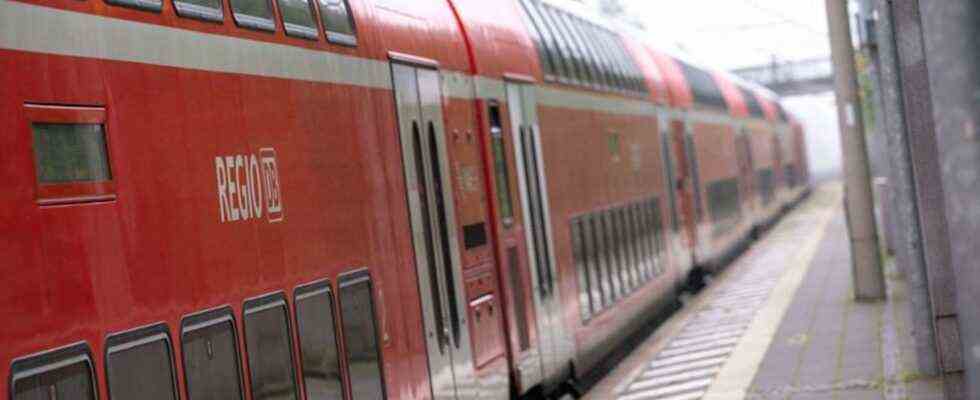traffic
Deutsche Bahn: Should the state-owned company be broken up?
A double-decker regional train of the Deutsche Bahn (DB) drives through a train station. Photo: Jonas Walzberg / dpa
© dpa-infocom GmbH
The future governing parties are wrestling with the structure of Deutsche Bahn – and are resuming a well-known debate: Should the network and rail operations in the federally owned group be separated?
As part of the coalition negotiations between the SPD, the Greens and the FDP, the debate about splitting up Deutsche Bahn has flared up again.
“The new federal government should tackle the vertical separation of the Deutsche Bahn AG, that is, a separation of the infrastructure from the actual rail operations,” said the chairman of the monopoly commission, Jürgen Kühling, on Friday of the “Süddeutsche Zeitung”.
In the ongoing negotiations about a future government, according to reports, there are different ideas about the future structure of the federally owned group in the mobility working group – but this is not surprising given the previous positions of the parties.
Partial privatization plans
Plans, especially those of the FDP, would in fact mean a break-up. The Liberals also want to separate infrastructure and rail operations, as stated in the election manifesto. The operation is to be privatized, the network will remain the property of the federal government. However, the SPD, which traditionally has good connections to the trade union camp, does not want to participate in the break-up.
The general direction of the transport giant, which has been a federally owned stock corporation since 1994, has been disputed for years. It was only in August that railway competitors raised the issue again in a joint position paper with the construction industry, calling for a split between the network and operations.
The track infrastructure in Germany currently belongs to the DB Netz subsidiary. It is responsible for the operation and expansion of the network. The company finances this from the train path charges that the railway companies have to pay for using the tracks. A rail toll that also applies to Deutsche Bahn’s transport companies.
Feared of limitations
Opponents of this structure criticize the fact that the railway is restricted by economic considerations in the urgently needed expansion of the track infrastructure in Germany. The cost-benefit factor decides whether a line will be built or not. “That is the main reason why it makes sense to separate them,” says Karl-Peter Naumann, honorary chairman of the Pro Bahn passenger association.
As the owner of the network, the federal government can decide more freely about investments in the infrastructure. In addition, he is not tied to the train path charges for financing and can lower them, says Naumann. Railway companies would then be able to afford more rail traffic and promote the turnaround in traffic. The Greens also included in their election manifesto the goal of releasing the infrastructure “from the pressure to make profits”.
“In almost all network economies – gas, electricity, post, telephony, Internet, air traffic – we have long had a separation between the network as a natural monopoly and the services on the network that are provided in competition,” said the president on Friday of the competitor association Mofair, Tobias Heinemann, with. “But we stopped at the railroad in the 1990s.”
Standstill of the traffic turnaround?
But there are also many opponents of a split who see a worsening of train traffic primarily in the privatization of rail operations. A break-up of the railway “would mean a standstill in the traffic turnaround,” said the deputy chairman of the Railway and Transport Union (EVG), Martin Burkert, of the German press agency. “We don’t have that time. Politicians now have to move the rails forward and take money into their own hands. “
The left expressed itself similarly: “The dismantling of the railway called for by the Greens and FDP is a wrong path,” said party leader Janine Wissler. «Rail and train operations belong together. More competition and privatization are not the solution, this has led to massive problems all over Europe. “
The railway itself also always emphasizes the advantages of an integrated group, even if no one commented on the subject on Friday upon request. In August, a spokesman said that successful railroads were integrated. “Why should we in Germany go a bad special path and also paralyze the rail system with years of political discussions instead of advancing climate protection?”

